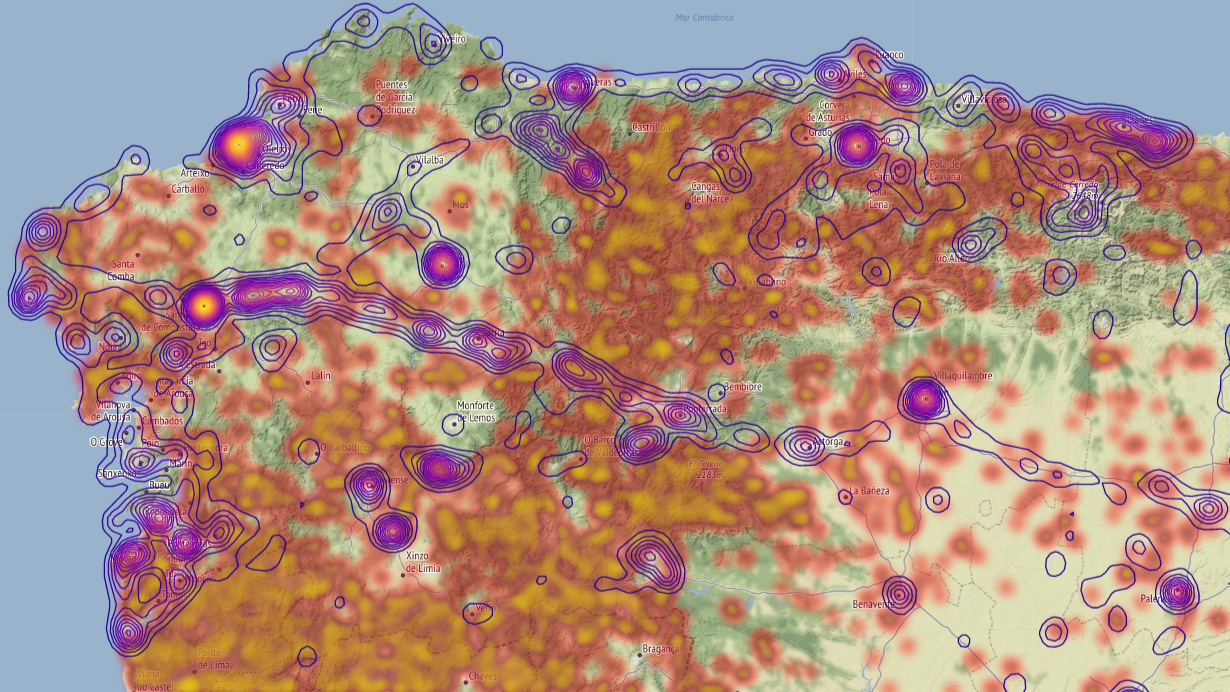2020 is the year of doing things remotely. It was therefore my home home office and a healthy internet connection that provided the space to participate in the AI for Good hackathon last weekend, organized by Deep Berlin. The task description was broad, but it pointed the teams to work on something related to climate change, specifically the occurrence of wildfires.
As a team of four, we spend the weekend looking at the relation of human activity and wildfires. We focused on data about touristic activity in Northern Spain, an area that has seen intense wildfire seasons in the past.
Final presentation video
(Excuse the nervous beginning, anyone who has attended a hackathon before will be familiar with the last minute push, in this case submitting a final video to the hackathon organizers on time.)
Please accept YouTube cookies to play this video. By accepting you will be accessing content from YouTube, a service provided by an external third party.
If you accept this notice, your choice will be saved and the page will refresh.
Some notes
A few thoughts on what we did and what I took away from the weekeend.
Pandas and scikit-learn
In my day job, I mostly work with Python, and am familiar with deep learning libraries like PyTorch and Tensorflow/Keras. The hackathon was a welcome opportunity to do some hands-on Data Science work again, and I enjoyed using Pandas and scikit-learn for quick data analysis and plotting. What a nice ecosystem.
Free location data
Open street map is an amazing community project providing labeled location data from all around the globe. Open Street Map location data is provided in the osm format. To read these files in Python, we used the osmium package. Reading the file and filtering the nodes for our usecase was straight forward, but loading from that format can take surprisingly long.
Free geo data
Once you start looking, you discover some interesting datasets out there which are freely available. We used the MOD14A1 dataset, which provides satellite data of very recent recordings (up to a few days from today), with access to multiple levels of abstraction in the data format.
Pretty maps in folium
Our team member Markus spend some time creating pleasing visualisations of maps in folium.

Code and resources
Our results were interesting, but anecdotal. You can find the collective resources from our team on Github. https://github.com/florianletsch/fire-tourism
How does a remote hackathon feel?
What I valued during that weekend was being in my default work environment. Our team quickly developed a working rhythm where we would have a video call for 30 minutes and then disconnect and spend some focused 2-3 hours by our own. I’ve never experienced such a focused working environment at an on-site hackathon.
Obviously, the main shortcoming of being remote was not having the chance to talk to people outside your team, or just bump into someone. Also, there was no way of passively observing what everyone is up to. From what gathered on Slack, many teams actually didn’t constitute properly, and then some lost participants tried to get into other teams, but it wasn’t as easy for them, as it might have been in person.
Would I join a remote hackathon again? Yes, to really get something done on 2 days. To actively socialize, it isn’t the right thing for me, though.